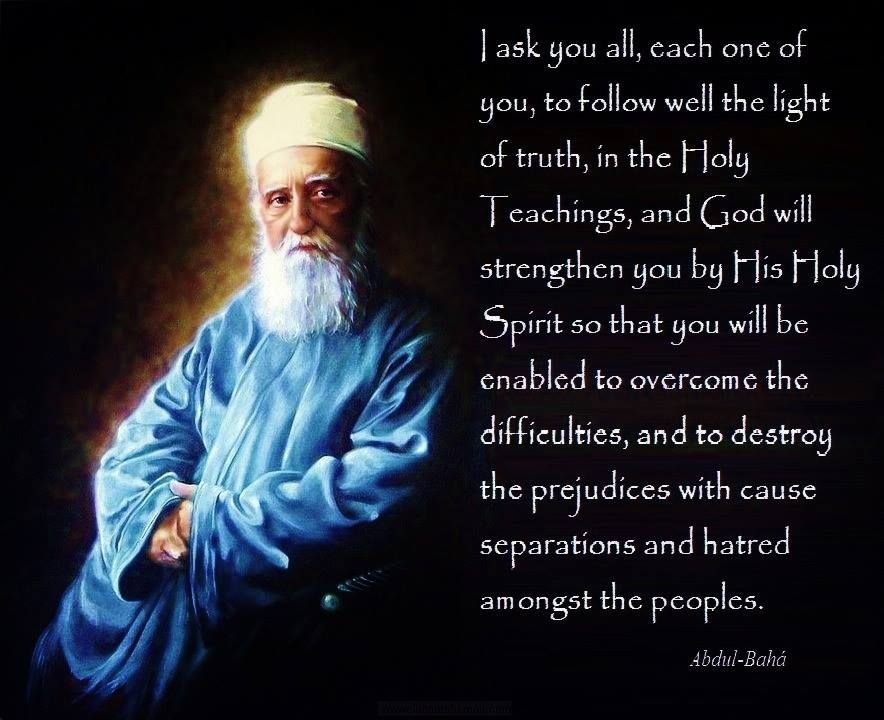The pursuit of spiritual truth has consistently driven humanity toward various paths of enlightenment, with the Bahá’í Faith emerging as a compelling contemporary movement. With its origins rooted in the 19th century, the Bahá’í Faith holds a unique position among religious traditions, characterized by its profound adherence to unity, peace, and the essential worth of all human beings. This article elucidates the foundational teachings of the Bahá’í Faith and explores both the mechanisms for and the motivations behind becoming a Bahá’í.
At its core, the Bahá’í Faith is predicated on the concept of the oneness of humanity. This principle posits that all individuals, regardless of their backgrounds, possess intrinsic worth and potential. It serves as an overarching theme that informs Bahá’í practices, ethics, and community life. The teachings emphasize that spiritual transformation is not an isolated aspiration but a collective responsibility. This leads us to explore the significance of individual and communal adherence to Bahá’í principles.
In examining how one might embark on the path of becoming a Bahá’í, we first acknowledge the importance of education and understanding. Potential adherents are encouraged to familiarize themselves with the writings of Bahá’u’lláh, the founder of the Faith, and other central figures. These texts elucidate key doctrines such as the unity of God, the prophetic succession culminating in Bahá’u’lláh, and the essentiality of social justice. Engaging with these writings serves not only as an intellectual pursuit but also as a spiritual awakening, prompting deeper reflection on one’s beliefs and values.
The process of becoming a Bahá’í is distinctly personal yet communal in nature. Individuals typically engage in discussions with current practitioners, allowing for an exchange of insights and experiences that can illuminate the complexities of the Faith. One common observation among those exploring this spiritual path is a deep-seated yearning for community and belonging. Such a desire often reveals a broader psychological reality, reflecting the human condition’s innate need for connection and understanding. In an increasingly fragmented world, the Bahá’í community offers a sanctuary of inclusivity and diversity, transcending national, ethnic, and religious boundaries.
Another salient feature of the Bahá’í journey is its commitment to service. The Faith encourages its followers to engage in acts of charity and community building, fostering a sense of responsibility for the well-being of others. This emphasis on service aligns with deeper philosophical principles suggesting that personal fulfillment is intricately linked to the welfare of the larger community. Involvement in social action projects can provide potential Bahá’ís with tangible experiences that deepen their understanding of the Faith’s teachings, while simultaneously addressing pressing global issues.
The ritual aspect of becoming a Bahá’í is relatively understated compared to other religious traditions, thereby reflecting a modern approach that prioritizes personal commitment over ceremonial observance. Prospective Bahá’ís formally declare their faith through a simple statement, affirming their belief in Bahá’u’lláh and their willingness to adhere to His teachings. This declaration is often accompanied by a period of prayer and reflection, signifying a transformative moment of commitment. The brevity of this process reflects the Faith’s emphasis on inner morality rather than external rituals.
An understanding of the Bahá’í administrative order is also paramount for those considering this spiritual path. The governance of Bahá’í communities is characterized by a unique system devoid of clergy. Decisions are made collectively through elected bodies, reinforcing the principle of consultation—a process built on mutual respect and collaboration. This innovative administrative framework is crucial for fostering a sense of ownership and engagement among adherents, further solidifying the communal aspect of the Faith.
The attraction to the Bahá’í Faith often arises from its forward-thinking perspectives on social issues such as gender equality, racial unity, and environmental stewardship. These teachings resonate with modern sensibilities, as adherents witness a world grappling with conflicts that stem from inequality and discrimination. The Bahá’í emphasis on justice encourages individuals to actively participate in efforts that promote equity and harmony. This alignment with contemporary moral imperatives often catalyzes an individual’s decision to embrace the Faith.
Furthermore, the Bahá’í Faith posits a vision of a transformative future, rooted in the principles of justice and unity. It invites followers to partake in the establishment of a global society that recognizes the interdependence of all peoples. In this regard, the Faith’s teachings on the necessity of integrating spirituality with everyday life command attention. Followers are encouraged to infuse their personal and professional lives with ethical considerations, thereby contributing to a more just and compassionate world.
In summation, the journey of becoming a Bahá’í is characterized by education, community engagement, personal commitment, and a deep sense of service. The allure of the Bahá’í Faith is not merely in its teachings but also in its embodiment of a collective vision that champions harmony, justice, and the oneness of humanity. While the process of spiritual exploration is singular, it unfolds within the rich tapestry of communal life, inviting individuals to contribute to a cause greater than themselves. As the world continues to evolve and confront complex challenges, the Bahá’í Faith stands as a beacon of hope, illustrating how spiritual transformation can catalyze societal change.
